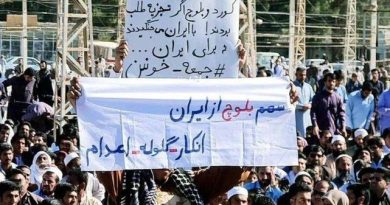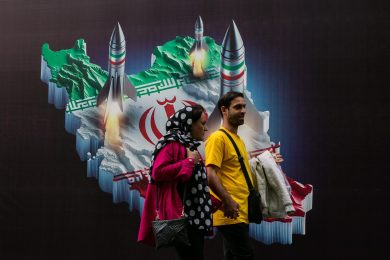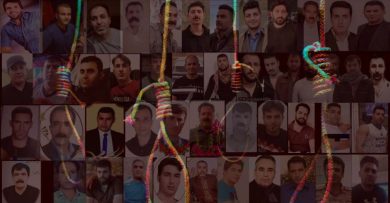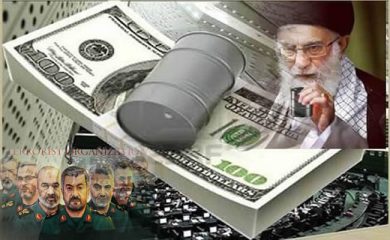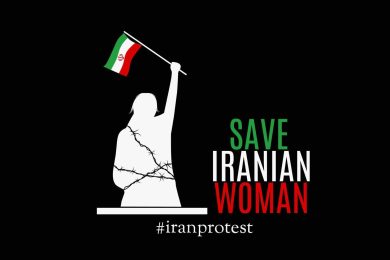Behind the walls of Iran’s most notorious prisons—Evin, Fashafouyeh, Ward 2-A, and countless clandestine detention centers—the Islamic Revolutionary Guard Corps (IRGC) carries out systematic repression. In these facilities, the IRGC’s intelligence units act with impunity, subjecting detainees to psychological torture, physical abuse, forced confessions, and sexual violence.
Many of those imprisoned are not criminals, but students, journalists, protesters, women defying dress codes, labor activists, ethnic minorities, and dual nationals. This article brings together first-hand accounts and verified testimonies from survivors of IRGC detention, exposing the truth of what happens when a government turns its military into a machine of fear.
1. The First Hours: Disappearance and Shock
Many detainees describe being kidnapped or abducted, not officially arrested.
“They didn’t show a warrant. I was blindfolded, shoved into a van, and taken to a place they never named.”
— Reza, student activist from Tehran
Some are taken from homes in the middle of the night. Others disappear on the way to work, only to reappear days or weeks later in prison, bruised, malnourished, and broken.
Families are often left in the dark, told nothing about the location or condition of their loved one.
2. IRGC Interrogation Tactics: Torture, Coercion, and Humiliation
Interrogations are rarely about information. Instead, they aim to crush the spirit, extract forced confessions, and justify state violence.
Common Methods:
• Beatings: With cables, fists, or batons
• Stress positions: Standing for hours, arms raised, or crouching with hands tied
• Sleep deprivation: For days, sometimes weeks
• Threats to family: Including rape, arrest, or murder
• Mock executions: Guns to heads, countdowns to death
• Verbal abuse: Dehumanizing insults, religious slurs
“They beat me until I collapsed, then revived me with cold water and started again.”
— Mina, women’s rights activist, arrested during 2022 protests
3. Solitary Confinement: The Psychological Warfare of Ward 2-A
Ward 2-A of Evin Prison is run entirely by the IRGC. Its cells are known for their psychological horror.
Conditions:
• White rooms with no window, no clock, no sound
• Continuous lighting to prevent sleep
• Total isolation from other prisoners
• Daily interrogations and disinformation (“Your family forgot you,” “They’ve moved on”)
“I forgot what day it was. I forgot how long I’d been there. I started to forget who I was.”
— Kourosh, filmmaker held for “spreading propaganda”
Many detainees emerge with PTSD, anxiety, or suicidal ideation.
4. Sexual Violence and Gendered Torture
Testimonies from female detainees—and some male survivors—point to systematic sexual abuse in IRGC detention.
Reports Include:
• Sexual assault during body searches
• Rape threats against detainees and their family members
• Invasive “virginity tests”
• Forcible nudity and video-taping
• Use of rape as a tool of humiliation, particularly against women who removed the hijab
“They said if I didn’t confess, they’d rape my sister in the next room. I don’t know if they did.”
— Leyla, detained student, 2022
These abuses are rarely documented formally, but whispered about in every activist circle.
5. Forced Confessions and State TV Propaganda
The IRGC frequently films detainees under duress, presenting confessions on state television to justify repression.
“They wrote my confession. I had to memorize it. If I didn’t, they beat me again. I said I was part of a Western conspiracy.”
— Nima, tech worker accused of cyber sabotage
Some detainees are drugged before filming. Others are threatened with execution or the arrest of family.
These confessions are then used to vilify dissidents, protesters, and journalists—both inside Iran and abroad.
6. Medical Neglect and Deliberate Harm
Even outside of physical torture, medical negligence is systemic in IRGC prisons.
• Broken limbs go untreated
• Infections are ignored
• Hunger strikers are force-fed violently
• Female prisoners are denied sanitary products
• Chronic illnesses are used as leverage: “Cooperate or we withhold insulin”
“I lost 70% of the vision in my right eye. I kept begging for a doctor. They laughed.”
— Shima, injured by pellet shot during protests, arrested while seeking treatment
7. Post-Release Surveillance and Trauma
For those released, the IRGC’s control often continues:
• Forced “signed promises” never to speak about prison
• Travel bans or passport confiscation
• Threats of re-arrest for speaking out
• Employment blacklisting
• Family members harassed or arrested to ensure silence
“I’m out, but not free. They still watch me. They call my father to remind him.”
— Omid, released in 2023
Survivors also struggle with deep trauma, sleep disorders, paranoia, and survivor’s guilt.
8. The Role of the Basij and IRGC Intelligence Units
While the IRGC oversees prison management, the Basij often handle public arrests, while IRGC Intelligence directs interrogations.
• The Basij operates under the guise of morality policing, targeting women, students, and workers
• IRGC Intelligence has replaced the Ministry of Intelligence in many political cases
• Joint units coordinate repression during protests, with mobile detention vans and field interrogations
This layered structure ensures deniability, but survivors recognize the patterns—and the uniforms.
9. Dual Nationals: Hostages of the State
Numerous dual nationals have been imprisoned by the IRGC and used as political bargaining chips.
Cases Include:
• Nazanin Zaghari-Ratcliffe (UK/Iran)
• Morad Tahbaz (UK/US/Iran)
• Siamak and Baquer Namazi (US/Iran)
• Ahmad Reza Jalali (Sweden/Iran)
Their detentions involve fabricated charges, show trials, and secret negotiations. In many cases, prisoners were tortured while their families were misled.
“He was a scientist. They made him a hostage.”
— Relative of Jalali, sentenced to death
10. Children in Detention
Even minors have not been spared:
• Children as young as 12 have been detained during protests
• Girls beaten in school, boys held in juvenile prisons run by IRGC affiliates
• Some released only after signing confessions or pledging loyalty to the regime
• Others never return home at all
“My son went out for bread. He never came back. We found out he died in custody a week later.”
— Father of 16-year-old, Zahedan
11. Smuggled Letters and Leaked Audio
Despite the danger, survivors smuggle letters, audio recordings, and notes from inside IRGC-run prisons. These messages have:
• Sparked global outrage
• Provided evidence to UN bodies and fact-finding missions
• Offered hope to the families of the disappeared
Many begin with the words:
“If you’re reading this, I may not be alive…”
12. International Silence and Legal Inaction
Despite overwhelming evidence, most IRGC prisons have not been investigated or sanctioned by international bodies.
• The UN Fact-Finding Mission on Iran (est. 2022) is one of few active efforts
• Few IRGC prison officials are on Magnitsky sanctions lists
• Survivors face barriers to legal recourse abroad
“They tortured me in a building with no name, under a flag I once respected. And the world still calls them a government.”
— Sara, political prisoner
13. Calls for Accountability
Survivors, lawyers, and human rights organizations are demanding:
• UN inspections of IRGC prisons
• Universal jurisdiction trials in Europe for torture and war crimes
• Magnitsky sanctions on IRGC prison commanders and judges
• Full terrorist designation of the IRGC to criminalize support networks
Accountability begins with naming—and shaming—the perpetrators.
14. What You Can Do
• Share survivor stories: Break the silence.
• Contact your government: Demand IRGC designation and sanctions.
• Support legal funds: Help survivors pursue justice.
• Host or attend events: Raise awareness in your community.
• Push for media coverage: Don’t let the world forget.
Conclusion: From Darkness to Witness
The IRGC builds prisons to hide truth. But truth escapes—even in whispers, even in blood-stained letters, even in scarred survivors who refuse to be silent.
Join Our Newsletter!
Stay informed with the latest updates, news, and ways to take action in the fight for justice and global security. Sign up now to get updates delivered straight to your inbox!

